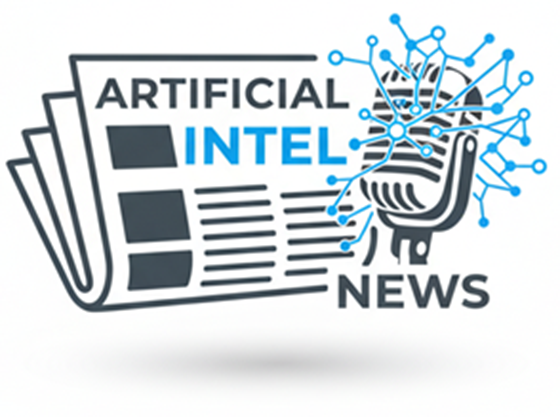Wikipedia AI Guidelines: How Wikimedia Protects Content
Wikipedia and the Wikimedia Foundation have outlined a clear, practical approach to ensure the encyclopedia remains sustainable and trustworthy as generative AI systems scale. Faced with declining human page views and spikes in automated traffic, the organization is urging AI developers to access and use its content responsibly — emphasizing attribution, operational fairness, and financial support for large-scale use.
Why Wikipedia is updating its stance on AI
Public-facing knowledge repositories are a core source of training data and factual grounding for many generative AI products. As those systems grow more capable and distributed, Wikimedia faces two connected pressures: reduced direct human engagement with the site, and large volumes of automated queries that stress volunteer-run infrastructure.
Key challenges Wikimedia is addressing include:
- Declining human visits and the risk that fewer volunteers will contribute updates and corrections.
- Automated scraping by AI bots that increases operational costs and complicates analytics for genuine human traffic.
- The need to preserve attribution so that human contributors receive credit and users can verify sources.
- Securing funding and predictable revenue to sustain the nonprofit mission while enabling responsible commercial uses.
How is Wikipedia protecting its content from AI scraping?
Wikimedia’s response mixes technical, commercial, and policy measures. These are designed to limit abusive automated access while allowing legitimate, scaled integrations under terms that support the foundation and preserve transparency.
1. Improved bot detection and traffic monitoring
The foundation has upgraded its bot-detection systems to better identify automated agents that try to mimic human behavior. These enhancements helped reveal unusually high traffic in recent months that originated from bots attempting to evade detection. By tightening detection rules, Wikimedia can limit abusive scraping that consumes bandwidth and degrades site performance.
2. Attribution requirements for generative AI
One of Wikimedia’s central requests is that generative AI developers explicitly attribute the encyclopedia when its content is used to produce outputs. Attribution serves multiple goals: it recognizes volunteer contributors, directs users to the original articles for verification, and builds trust in AI outputs by clarifying sources.
3. Paid, opt-in access for large-scale use
To enable high-volume, production-grade access without overwhelming public infrastructure, Wikimedia is promoting a paid, opt-in access model for organizations that need content at scale. This commercial pathway aims to do two things simultaneously: provide predictable funding for the nonprofit, and offer a sustainable access mechanism that reduces pressure on the public servers.
What this means for editors and volunteers
Fewer human visits to Wikipedia can have a direct effect on content quality. When volunteers do not regularly visit and contribute, articles risk becoming outdated or less comprehensive. Wikimedia’s approach explicitly tries to reverse this trend by coupling technical protections with financial mechanisms that support community work:
- Revenue from paid access can fund editor tools, moderation, and outreach to grow and retain volunteers.
- Attribution encourages AI users and consumers to link back to live pages, increasing the chance of human visits and edits.
- Improved bot controls free up server capacity and help ensure that human readers get reliable access.
What are the implications for AI developers and companies?
For AI builders, Wikimedia’s model reframes responsible access as both an ethical and a practical requirement. Companies that rely on open encyclopedic content for grounding, training, or retrieval-augmented generation should consider the following:
- Implement robust attribution in user-facing outputs so end users can trace facts back to Wikipedia articles.
- Use licensed, paid access channels when requesting high query volumes to avoid throttling and to support sustainable operations.
- Respect rate limits and technical guidelines to prevent unintended denial-of-service-like effects on public infrastructure.
Adopting these practices helps AI providers avoid reputational risk, align with community standards, and sustain a healthy information ecosystem that benefits both models and users.
How attribution strengthens trust and verification
Attribution is not merely a courteous gesture; it’s a core pillar of information hygiene in the age of generative AI. When AI outputs link back to primary sources, users can:
- Confirm the claim or fact and check the context around it.
- Access additional details that may inform or correct model output.
- Engage with or contribute to the source directly, closing the loop between consumption and community-driven improvement.
Platforms that elevate source signals and provenance are better positioned to earn user trust and to comply with emerging transparency expectations from regulators and civil society.
How Wikimedia’s approach aligns with broader AI data discussions
Wikimedia’s stance intersects with industry conversations about data quality, provenance, and sustainable infrastructure. For example, high-quality, curated sources are central to building reliable models — a topic explored in our analysis of data supply chains and model performance in “The Role of High-Quality Data in Advancing AI Models” (read more).
Similarly, the need to manage and persistently reference knowledge over time ties into emerging memory systems for LLMs — an area discussed in our piece on “AI Memory Systems: The Next Frontier for LLMs and Apps” (read more). Both threads underline that access models and attribution practices matter for the accuracy and longevity of AI-driven applications.
Legal, ethical, and operational trade-offs
Wikimedia’s guidance sits at the intersection of practical operation and ethical stewardship. It does not primarily threaten enforcement or immediate legal action; rather, it seeks cooperation and a sustainable economic path forward. That said, the policy raises several trade-offs:
- Open access vs. sustainability: Public access to free content remains a core value, but unrestricted automated scraping undermines infrastructure and volunteer incentives.
- Transparency vs. product simplicity: Requiring attribution may reduce seamless user experiences in some AI products, but it increases verifiability.
- Commercial licensing vs. community ethos: Paid access for scale introduces revenue but must be balanced with the encyclopedia’s mission and public accessibility.
Practical recommendations for AI teams
If your organization relies on Wikipedia content, here are practical steps to align with Wikimedia’s guidance and reduce long-term risk:
- Audit current data flows to discover high-volume scrapers or excessive API calls.
- Integrate citation and attribution metadata into model outputs, UIs, and logs.
- Negotiate paid access or enterprise terms if your usage is production-scale.
- Contribute back: consider supporting the community through donations, tooling, or editor grants.
- Monitor and respect rate limits; use cached or licensed snapshots where appropriate.
These measures not only reduce operational strain on public sites but also reinforce a collaborative relationship between AI builders and knowledge stewards.
What should readers watch next?
Expect incremental changes: stronger bot controls, clearer licensing options, and more public guidance on attribution expectations. The conversation will likely influence policy debates about training data transparency and platform obligations. For a broader view on how policy-minded approaches are shaping the field, see our coverage of AI policy frameworks in “Navigating AI Policy: Anthropic’s Balanced Approach” (read more).
Conclusion: balancing openness, sustainability, and trust
Wikimedia’s updated guidance is a pragmatic move to preserve the encyclopedia’s mission as AI systems proliferate. By insisting on attribution, offering paid access at scale, and improving bot detection, the foundation is charting a path that protects contributors, funds community work, and enables responsible commercial use. AI developers who embrace attribution, respect access limits, and invest in sustainable licensing will help build a healthier information ecosystem that benefits models, companies, and the public alike.
Ready to act?
If your team uses Wikipedia content, start with an internal audit and review attribution practices today. Support responsible AI by implementing provenance in outputs and exploring licensed access for production needs. For ongoing coverage and technical guidance on data quality and infrastructure, subscribe to Artificial Intel News and follow our deep dives into data strategies and AI systems.
Call to action: Review your usage policies, adopt attribution, and consider contributing to Wikimedia’s sustainability — sign up for updates and policy briefings at Artificial Intel News to stay informed.





